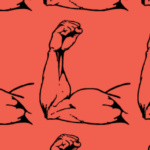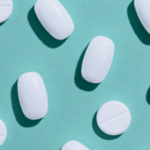Medically reviewed by
What are hormones?
Hormones are chemical messengers made by glands in your body, which are carried in your blood to act on other organs in the body.
You need hormones for growth, reproduction and well-being.
Learn about the male reproductive system.
Why is the brain important for male reproduction?
The pituitary gland and the hypothalamus, located at the base of your brain, control the production of your male hormones and sperm.
The hypothalamus makes gonadotropin-releasing hormone (GnRH), which controls the release of other hormones from your pituitary gland.
The hormones from the pituitary travel through your blood to make changes in your testicles.
What are androgens?
Androgens are male sex hormones that increase at puberty. You need them to develop into a sexually mature adult who can reproduce.
What is testosterone?
Testosterone is the most important androgen (male sex hormone). You need it to have normal reproductive and sexual function.
Testosterone is important for the physical changes that happen during puberty, such as the development of the penis, testicles, facial and body hair, and muscle growth.
Testosterone acts on cells in your testicles to make sperm. Testosterone is also important for overall good health.
It helps the growth of bones, and affects your mood and sex drive. Some testosterone is changed into oestrogen, the female sex hormone, and this is important for your bone health.
Subscribe to our newsletter

Where is testosterone made?
Testosterone is mainly made in your testicles. A small amount of testosterone is also made by your adrenal glands, which are small glands that sit on top of your kidneys.
How do hormones control the testes?
The pituitary gland and the hypothalamus, located at the base of the brain, control the production of hormones and sperm.
Your hypothalamus makes gonadotropin-releasing hormone (GnRH), which controls the release of other hormones from the pituitary gland.
Luteinizing hormone (LH) and follicle stimulating hormone (FSH) are the two important messenger hormones that your pituitary gland makes, which then act on your testicles to make testosterone and sperm.
What happens to testosterone in the blood?
As testosterone moves through your body in your blood, it’s changed or metabolised into other sex hormones, oestradiol and dihydrotestosterone (DHT).
Oestradiol, known as the female sex hormone, is also important for your bone health and for preventing osteoporosis.
How do testosterone levels change throughout the day?
The levels of testosterone in your blood change throughout the day. Your testosterone is at its highest around the time you wake up and lowest about 12 hours later.
This pattern across the day is called a ‘diurnal rhythm’ and happens normally in many of your body’s hormonal systems.













